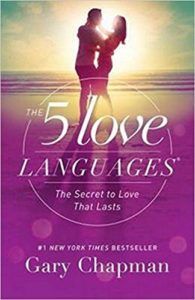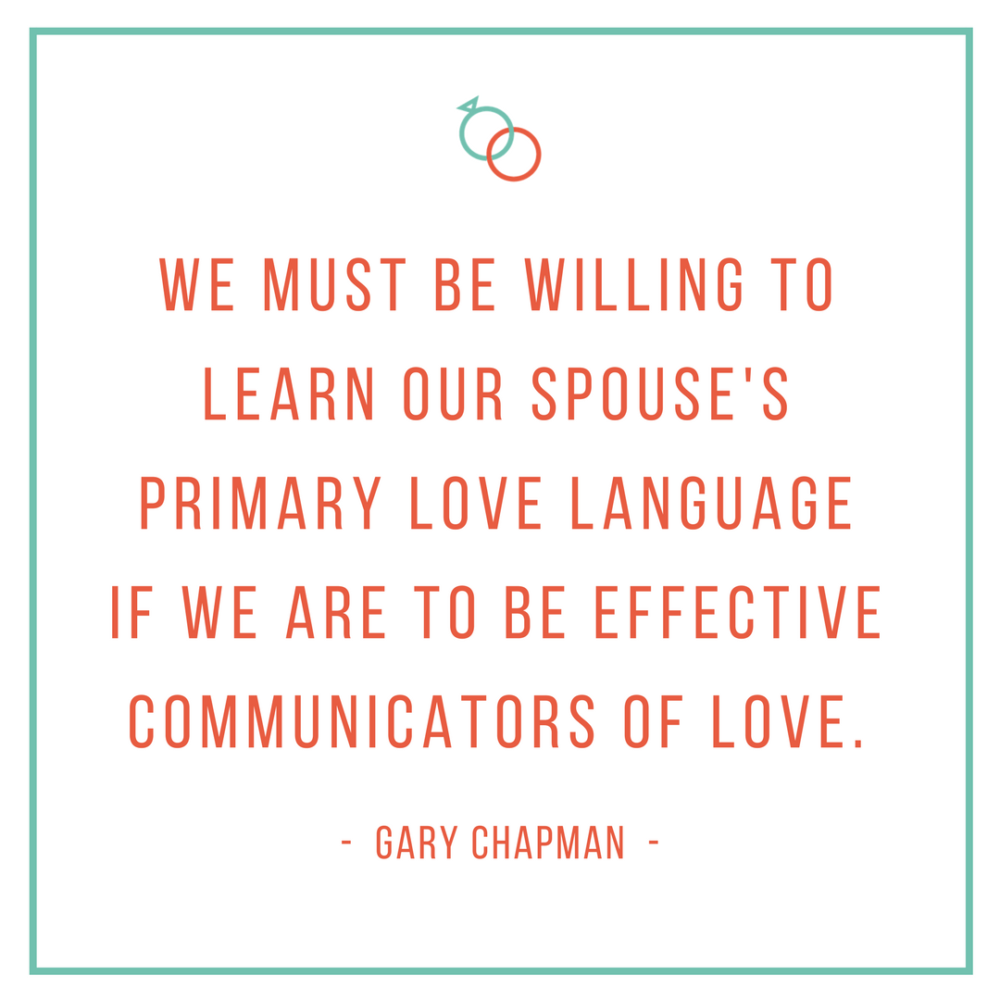Love Languages Part 1: Understanding
By Amy Miller
*This post contains affiliate links.
I am a huge believer in love languages! Gary Chapman is most well-known for this idea in his book: “The Five Love Languages.” There are other interpretations when it comes to understanding how people feel loved but this seems to hit it on the head for me! I honestly could say I have a testimony on how important this concept is to marriages because I utilize it repeatedly in my marriage and in other relationships! I’ll share a few of those experiences in these two posts. This first part is on understanding the following: what a love language is, what your partner’s love language is, what your love language is, and why it’s important to marriage!
Understanding your spouse’s love language provides the opportunity to create a stronger environment of love for one another. It gives you the opportunity to truly know your spouse and know how they want to be loved. Isn’t that SUPER CRITICAL in a marriage? And the thing about this concept is that it will always be needed and used no matter what year of marriage you are in!
STORY TIME:
- Between our 3rd and 4th date I made Trevor a gift basket of brownies and a nice card to say thank you for the great weekend of dates I had with him. This act really changed how he felt about me, because apparently he wasn’t sure how I felt about him, and was needing to hear it in order to know if he should keep pursuing me. My words of affirmation were literally pivotal in our relationship, so it’s VERY important that we let our spouse know we love them in the way they need to feel it. Even if you think they should know it deep down, sometimes they don’t know you love them until you tell them, touch them, or show them!
What are love languages?
A love language is a way of feeling and expressing love based upon a partner’s emotional needs. Here are Gary Chapman’s five:
Words of Affirmation
- Feeling loved through verbal words of encouragement, compliments, kindness, or humility. The preferences in the types of affirmations differ among those who identify with this love language.
Acts of Service
- Feeling loved when acts of service are performed for you, requiring time, effort, and thought. The kinds of services rendered can differ among those who identify with this love language.
Quality Time
- Feeling loved when time is spent with you in meaningful activities or through meaningful conversation. What is categorized as "meaningful" differs among those who identify with this love language.
Gifts
- Feeling loved when you receive gifts that are can be either purchased, found, or made. The preferences in the type of gift received differs among those who identify with this love language.
Physical Touch
- Feeling loved through physical affections such as hugs, kisses, holding hands, cuddling, sexual intimacy, etc. Physical intimacy is a basic emotional need for everyone but some people more strongly identify with this love language.
THINGS TO REMEMBER
Hearts are divided differently for everyone. So though each of us has the capacity to feel loved in each of the five love languages, we each have a preference for how we express our love and how we receive love. We tend to show love for others in the way we would like others to show love for us. So for example, I love being the recipient of little acts of service, and because I know how good it makes me feel, I like to do acts of service for others to show I care about them. This strategy doesn’t always work best though when acts of service is not your partner’s primary love language, haha.
This is when it gets tricky. The dynamics among every couple are different. Some couples might have the same primary love language. Some couples might have a different primary but share the secondary love language. And then there are some couples that don’t share either of the primary or secondary love languages. That last one probably seems stressful when you read it, haha, but if you play your cards right both partners can have their emotional needs met beautifully!
Take Home Assessment:
I bet at this point you are thinking about what your primary love language is and what your spouse’s is! Right? WELL, Gary Chapman has a 30-question assessment that couples can take to determine this. Each question asks, “It’s more meaningful to me when…” and provides two options for you to choose from. Take it individually, then discuss your highest scores together when you are done. I have suggestions on how to make the most of this:
- Each of you states what your primary love language is and WHY
- The why is crucial for your spouse’s understanding so be detailed here!
- Point out specific questions on the assessment that maybe highlight exactly what is most meaningful to you, so that your partner has concrete examples of what you enjoy the most.
- Then each of you states what your secondary love language is and WHY
- Some people might be tied with the rest of the four, but typically there are two clear winners. I think the secondary love language is just as important as the primary love language because there is more opportunity to overlap with each other.
IF YOU THINK YOU KNOW
If we know and understand what our partner prefers when it comes to being shown love, then we are one step forward to increasing intimacy and friendship! But if we don’t know and instead guess, it can take us steps backward. If you think you know what your partner’s love language is, I still strongly suggest taking this assessment! I’m 90% sure you will learn something new about what is meaningful to them, but if you were exactly right it just confirms your knowledge about them! There is nothing to lose here!
Maybe you took the assessment years ago. A few things about that… Take it again! Why not freshen up your understanding of your partner’s love language?? (See what I did there with FRESH? haha) Maybe you have hit a rough patch and expressing love for each other is just not as in sync as it used to be. Going over this again refreshes your memory with specific ways you can demonstrate your love for each other. I also know that time and life stages can alter love languages, so maybe your partner wants you to show them love in a different way now. Good to know, right?
Take the time to think about this, take the test, and discuss with your partner. In the meantime, read Love Languages Part 2: Speaking!
And I suggest grabbing the book for yourself here!



